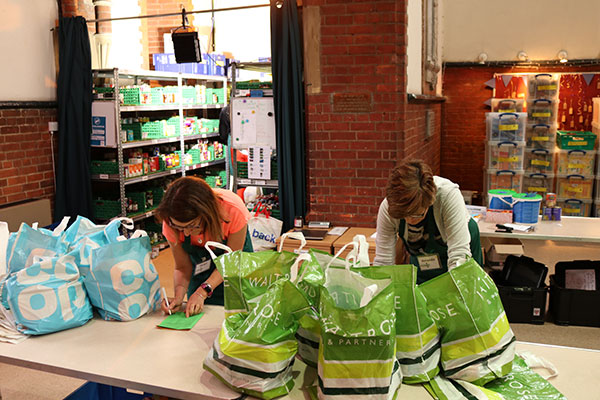The impact of coronavirus on everyday life has yet to be fully determined in the UK, but it has already taught us a few lessons.
Firstly, the short-term impact of disrupted travel and logistics to our globalised food supply chain is massive. Ironically, businesses preparations for a potential no-deal Brexit (remember that?) meant that many major supermarkets and retailers had already secured extra warehousing, meaning that supplies have likely been protected more than they might have been.
Despite this, there have still been the stories of stockpiling, people panic-buying essentials like pasta, tins and, apparently, toilet roll.
Strangely there are no headlines around bare supermarket shelves of what might actually help in a public health crisis, namely, supplies of fresh fruit and vegetables, packed full of vitamin C, but that’s by the by.
As people get used to the idea of self-isolation and quarantine there has also been a huge surge in home delivery. Major supermarkets like Tesco and Sainsbury’s have a two-week waiting list for any home deliveries, while organic veg box company Riverford recorded its highest ever week of sales outside of Christmas and has taken much of its range off sale to keep pace with packing of core fresh produce, driven perhaps as much by the health benefits of fresh organic vegetables, as convenience.
A much less happy consequence of the impact on food supplies from Coronavirus has been the fall in donations to food banks. There have been pleas from redistribution charities all over the country as shoppers taking extra tins home for themselves reduce the availability for those in need.

What this highlights more than anything is, once again, how the most vulnerable in our society, those who are homeless, refugees seeking asylum from war or terror, or those unable to help themselves, are at the frontline of any crisis, with nothing to fall back on. They should not be forgotten in the race to protect ourselves.
But as the UK prepares for an unprecedented next few weeks, one thing has stood out above all. At risk of repeating a Guardian article with the same message, it’s clear that the country can adapt and mobilise into a state of emergency, albeit not quickly enough for some, and move itself out of ‘business as usual’.
Not to diminish the impact of Covid-19 on lives, for its threat to older or vulnerable people is all too real, but the question remains over why we are so slow to respond to another already present emergency.
The climate crisis may be slower moving than the rapidly-spreading virus, but its impact is far more widespread and potentially more threatening. The economy, education, travel, energy and food must all rapidly transition if we are to have any chance of countering a permanent change to the world as we know it, as argued by Green Party MP Caroline Lucas elsewhere in Wicked Leeks this week.
Coronavirus might be today’s concern, but tomorrow’s is already here.
Advice for customers of Riverford’s organic veg boxes and the impact of coronavirus can be found here.












0 Comments